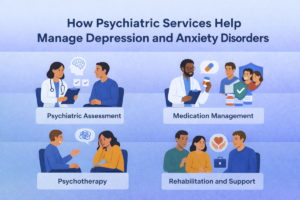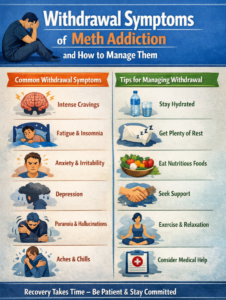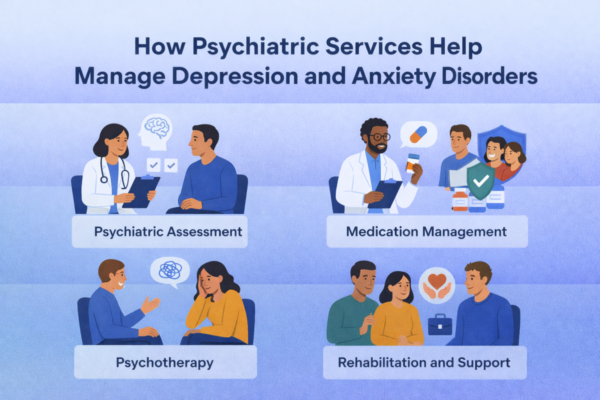
Introduction: Understanding Benzodiazepines and Their Risks
Benzodiazepines (commonly called benzos) are a class of prescription drugs used to treat anxiety, insomnia, seizures, and muscle spasms. Popular medications include Diazepam (Valium), Alprazolam (Xanax), and Lorazepam (Ativan). While effective for short-term relief, long-term benzodiazepine use can lead to severe physical and psychological dependence.
At New Hope Rehab and Caring Center Islamabad, we have witnessed firsthand the devastating impact of prolonged benzodiazepine use. This article explores the dangers of long-term benzo use, the signs of dependence, and why early intervention and professional benzodiazepine addiction treatment in Pakistan is critical for recovery.
How Benzodiazepines Affect the Brain and Body
Benzodiazepines work by enhancing the effects of GABA (gamma-aminobutyric acid), a neurotransmitter that calms brain activity. This results in sedation, reduced anxiety, and muscle relaxation. However, with chronic use, the brain becomes dependent on benzos to function normally.
Over time, the natural production of calming neurotransmitters declines, leading to tolerance, where higher doses are needed to achieve the same effect. This sets the stage for physical dependence and, eventually, addiction.
Warning Signs of Benzodiazepine Dependence
Recognizing the signs of benzodiazepine dependence early can prevent long-term damage. Common indicators include:
-
Increased dosage without medical supervision
-
Difficulty functioning without the drug
-
Cravings and obsessive thoughts about taking benzos
-
Withdrawal symptoms like anxiety, tremors, or insomnia when skipping a dose
-
Neglecting responsibilities at work, home, or school
-
Doctor shopping or illegally obtaining prescriptions
If you or a loved one show any of these signs, it’s crucial to seek help from a professional rehab center in Islamabad like New Hope Rehab and Caring Center, which specializes in prescription drug abuse treatment.
Health Risks of Long-Term Benzodiazepine Use
The dangers of prolonged benzo use are both physical and psychological, including:
1. Cognitive Impairment
Long-term use is associated with memory loss, impaired concentration, and even dementia-like symptoms. These effects can persist even after discontinuing the drug.
2. Emotional Instability
Chronic users often experience depression, irritability, and mood swings. Benzodiazepines can worsen mental health disorders over time rather than treating them.
3. Physical Health Decline
Extended use may lead to fatigue, muscle weakness, and loss of coordination. There’s also an increased risk of falls and injuries, especially in older adults.
4. Dependency and Addiction
Benzo addiction is a serious medical condition requiring supervised detox. Quitting cold turkey can cause life-threatening withdrawal symptoms, including seizures, hallucinations, and severe anxiety.
The Challenge of Benzodiazepine Withdrawal
Withdrawal from benzodiazepines is one of the most difficult detox processes due to the intensity and duration of symptoms. Common benzo withdrawal symptoms include:
-
Extreme anxiety and panic attacks
-
Insomnia and nightmares
-
Nausea and vomiting
-
Tremors and muscle spasms
-
Hallucinations and psychosis
-
Seizures
These symptoms can last weeks or even months without proper medical care. That’s why drug detox in Islamabad should always be done in a professional rehabilitation facility like New Hope Rehab, offering 24/7 medical supervision and support.
Long-Term Benzo Use and Mental Health
Ironically, although benzos are prescribed for anxiety and insomnia, long-term use often worsens these issues. Many patients develop rebound anxiety, a condition where symptoms return even stronger once the drug’s effects wear off.
Furthermore, studies show that prolonged benzo use can increase the risk of depression, suicidal thoughts, and emotional numbness. These mental health challenges require integrated care, combining therapy, medication management, and holistic healing methods.
How New Hope Rehab and Caring Center Islamabad Can Help
At New Hope Rehab and Caring Center Islamabad, we offer evidence-based benzodiazepine addiction treatment tailored to each individual’s needs. Our comprehensive approach includes:
1. Medical Detoxification
Safe, supervised detox with medications to ease withdrawal symptoms and prevent complications.
2. Individual and Group Therapy
Cognitive Behavioral Therapy (CBT), Dialectical Behavioral Therapy (DBT), and motivational interviewing help address the underlying causes of addiction.
3. Family Counseling
We engage families to rebuild trust, communication, and support systems for long-term recovery.
4. Relapse Prevention Planning
Tools and strategies to avoid triggers, manage stress, and sustain sobriety.
5. Aftercare Services
Ongoing support, mental health services, and follow-up care to ensure long-term success.
6. Holistic Healing Therapies
Yoga, mindfulness, nutrition counseling, and fitness to restore overall well-being.
Why Choose Professional Help Over Quitting Alone?
Attempting to quit benzos without medical supervision can be dangerous and ineffective. Most people who try to quit alone relapse quickly due to the severity of withdrawal symptoms.
By choosing a licensed Islamabad rehab center like New Hope Rehab, patients receive structured, compassionate care from trained addiction specialists. Our center is known for high recovery rates, confidential treatment plans, and a healing environment that encourages lasting transformation.
Conclusion: Take the First Step Toward Recovery
The dangers of long-term benzodiazepine use are real and life-altering, but help is available. If you or someone you love is struggling with benzo dependence, don’t wait for the situation to worsen. Reach out to New Hope Rehab and Caring Center Islamabad for safe, effective, and compassionate treatment.
Let us help you break free from benzodiazepine addiction and reclaim your life. Call us today for a confidential consultation and take the first step toward healing and recovery.











